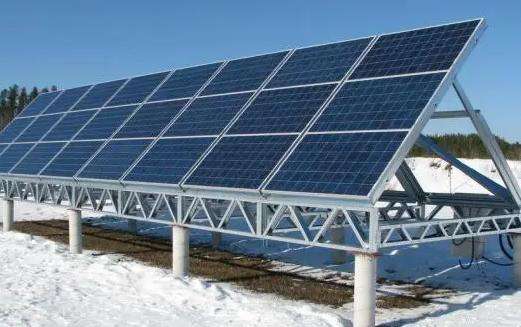Ocean thermoelectric power generation uses the temperature difference between the shallow and deep layers of seawater and its different temperature and cold heat sources to produce electricity via heat exchangers and turbines. In existing ocean temperature difference power generation systems, the thermal energy source is warm seawater on the ocean surface. There are basically two methods of generating electricity: one is to use hot seawater to evaporate the low-boiling working fluid in a closed circulation. the other is to use warm sea water to evaporate the low boiling point working fluid in a closed circulation system. The first is that hot seawater itself boils in a vacuum chamber; Both methods produce steam, which then drives a turbine to produceelectricity. Steam from electricity production can be cooled by cold seawater to very low temperatures and converted back into fluid to form a cycle.
The thermal energy of the oceans comes mainly from solar energy. The area of the world's oceans is vast and limitless, and the tropical oceans are also quite large. Ocean thermal energy can be replenished after use and is worth developing and using. According to calculations, as long as half of the ocean surface, between 20 degrees south latitude and 20 degrees north latitude, is used for electricity generation and the sea water temperature does not drop in average of 1°C, 60 billion kilowatts of electrical energy can be obtained, which is equivalent to the current production of electricity in the world. Experts estimate that the East Coast of the United States alone can get 75 times the electricity that the United States has.United needed in 1980 thanks to the warm current coming from the Gulf of Mexico.
How can we effectively use the energy of the seawater temperature difference to serve humanity? Arsène Arsonval of France first proposed the idea of generating electricity from ocean temperature differences in 1881. That is, the invention of a power plant that uses the temperature difference between the surface layer (heat source) and the deep layer (cold source) of sea water to produce electricity. So, in 1930, Claude successfully used the energy of the ocean temperature difference to generate electricity for the first time off the coast of Cuba. However, because the water pumps in the power generation system consumed more energy than the electricity they produced, producing pure electricity. the amount was negative. However, people did notnot discouraged. In 1979, Hawaii's MINI-OTEC power generation system generated a net power generation capacity of 15 kW for the first time [1]. Seawater temperature difference power generation technology uses surface seawater (25℃~28℃) heated by solar energy as a high temperature heat source, and uses the sea water (4℃~7℃) at a depth of 500 meters to 1,000 meters as a heat source. a low temperature heat source. It is made up of a heat engine. Power generation technology using a thermodynamic cycle system. From a high temperature heat source to a low temperature heat source, it is possible to obtain efficient energy with a total temperature difference of approximately 15°C to 20°C. Ultimately, it is possible to obtain energy with technical significance from a temperature difference of 11°C.
As soon asSeptember 1881, the Parisian biophysicist de Assonval proposed the idea of using ocean temperature differences to produce electricity. In November 1926, the French Academy of Sciences set up an experimental thermoelectric power station, which confirmed Assonval's idea. In 1930, Claude, a student of Assonval, built a seawater temperature difference power plant in the sea near Cuba.
In 1961, France built two 3,500-kilowatt seawater temperature differential power plants on the coast of West Africa. The United States and Sweden jointly built a seawater temperature difference power plant with an installed capacity of 1,000 kilowatts on the Hawaiian Islands in 1979. The United States also plans to build a power plant seawater temperature difference of one million kilowatts at the dawn of the 21st century.Electricity generation devicesand using Gulf Stream thermal energy to establish 500 ocean thermal power plants on the east coast, with a power generation capacity of 200 million kilowatts [3].














